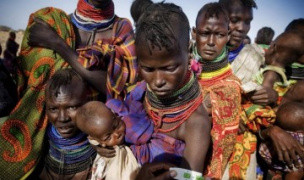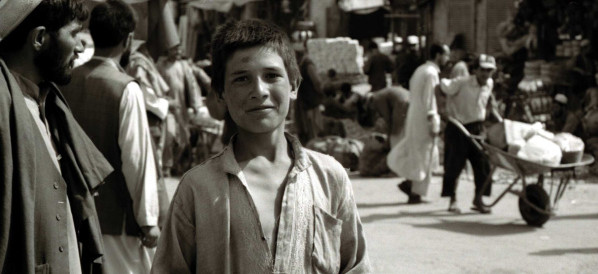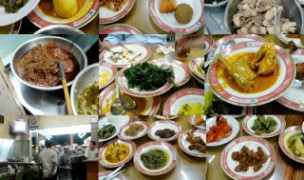 10 Terms
10 TermsHome > Terms > English (EN) > nature
nature
Nature has been a fundamental feature of American culture since the European “discovery” of a new-world Eden. This embrace of wilderness or the “great outdoors” permeates the elevation of the pastoral ideal over the city, the celebration of the frontier and the centrality of this concept in art, architecture, literature and mass media. Yet, like other constructs of contemporary American culture, nature as a place, a set of dynamic forces and a congerie of salient features—green space, animals, even disease— has also been shaped by issues of control and independence, consumption and representation.
Nature, as a symbol of American independence, for example, has been owned and shaped for decades: American historical narratives continually stress this conquest of the wilderness in the inevitable advance of manifest destiny (at the expense of American Indians, often identified with nature in popular representation). State and national parks, forests and reserves preserve some space, especially in the West, as public domains. Yet others have appropriated nature through giant ranches and estates as well as smaller suburban landscapes. Within both public and private domains, questions of use also confront independence: whether logging or mineral extraction, for example, supersedes public appreciation or whether private owners have unlimited use of water, beachfront, land or other resources. These debates also have raised issues of access—not only via automobiles, highways, tourism and hotels in national parks—but also over rights to drive sports utility vehicles, motorcycles, snowmobiles or mountain bikes into pristine areas in order to be one with nature, albeit en masse. Similar issues have erupted concerning ownership, display and scientific use of animals, whether in the wild, on ranches, in zoos or as pets, confronting those who espouse animal rights.
Nature has also become a theme in consumption, both directly—in these issues of access and ownership—and indirectly. Sales of vehicles, clothing and gear make nature a major industry; chains like Eddie Bauer, L.L. Bean and Timber-land specialize in rugged clothing that may never see the wilderness. Nature may imply simplicity and antitechnology in food, fashion, or housing, yet it has also become associated with high-tech items and designs for climbing, hiking, cooking, sleeping and computing in the outdoors.
Such consumption also varies with the life cycle and with class access to resources as well as ethnic differences. Hence, summer camps and family vacations give way to more rugged sports and eco-tourism for many. Home sites and retirement communities in the Sunbelt that sell sun, water and landscape to older citizens as passive consumers differentiate citizens in rights to wilderness as do consumption issues.
Nature is also fundamental to American self-representation. Genres like the western (in literature, film and television), the Southern, road movies, horror, science fiction and disaster movies draw on various features of land, climate and animal life within their plots. American art and architecture, from the American Light of the Hudson River School or the parks of Frederick Law Olmsted in the nineteenth century to the paintings of Georgia O’Keefe, the California homes of Richard Neutra or fashions like Southwestern style, have all incorporated domination and reconstruction of nature into American character. Emblematic figures like the cowboy permeate advertising as well.
Yet the paradox of nature outside of and more powerful than mankind, but also tamed and owned by America and Americans, continues to trouble environmental policy and planning for the future.
- Part of Speech: noun
- Synonym(s):
- Blossary:
- Industry/Domain: Culture
- Category: American culture
- Company: Routledge
- Product:
- Acronym-Abbreviation:
Other Languages:
Member comments
Terms in the News
Billy Morgan
Sports; Snowboarding
The British snowboarder Billy Morgan has landed the sport’s first ever 1800 quadruple cork. The rider, who represented Great Britain in the 2014 Winter Olympics in Sochi, was in Livigno, Italy, when he achieved the man-oeuvre. It involves flipping four times, while body also spins with five complete rotations on a sideways or downward-facing axis. The trick ...
Marzieh Afkham
Broadcasting & receiving; News
Marzieh Afkham, who is the country’s first foreign ministry spokeswoman, will head a mission in east Asia, the state news agency reported. It is not clear to which country she will be posted as her appointment has yet to be announced officially. Afkham will only be the second female ambassador Iran has had. Under the last shah’s rule, Mehrangiz Dolatshahi, a ...
Weekly Packet
Language; Online services; Slang; Internet
Weekly Packet or "Paquete Semanal" as it is known in Cuba is a term used by Cubans to describe the information that is gathered from the internet outside of Cuba and saved onto hard drives to be transported into Cuba itself. Weekly Packets are then sold to Cuban's without internet access, allowing them to obtain information just days - and sometimes hours - after it ...
Asian Infrastructure Investment Bank (AIIB)
Banking; Investment banking
The Asian Infrastructure Investment Bank (AIIB) is an international financial institution established to address the need in Asia for infrastructure development. According to the Asian Development Bank, Asia needs $800 billion each year for roads, ports, power plants or other infrastructure projects before 2020. Originally proposed by China in 2013, a signing ...
Spartan
Online services; Internet
Spartan is the codename given to the new Microsoft Windows 10 browser that will replace Microsoft Windows Internet Explorer. The new browser will be built from the ground up and disregard any code from the IE platform. It has a new rendering engine that is built to be compatible with how the web is written today. The name Spartan is named after the ...
Featured Terms
street children
Street children is a term for children experiencing homelessness who live on the streets of a city. Homeless youth are often called street kids and ...
Contributor
Featured blossaries
Marouane937
0
Terms
58
Blossaries
3
Followers
The 10 Worst African Economies
 10 Terms
10 Terms
Browers Terms By Category
- General Finance(7677)
- Funds(1299)
- Commodity exchange(874)
- Private equity(515)
- Accountancy(421)
- Real estate investment(192)
Financial services(11765) Terms
- General seafood(50)
- Shellfish(1)
Seafood(51) Terms
- Human evolution(1831)
- Evolution(562)
- General archaeology(328)
- Archaeology tools(11)
- Artifacts(8)
- Dig sites(4)
Archaeology(2749) Terms
- American culture(1308)
- Popular culture(211)
- General culture(150)
- People(80)
Culture(1749) Terms
- Automobile(10466)
- Motorcycles(899)
- Automotive paint(373)
- Tires(268)
- Vehicle equipment(180)
- Auto parts(166)



